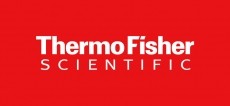Elchrom launches siRNA-purity equipment
enabling a greater yield of ultra pure siRNA synthetic
oligonucleotides at a faster turn around rate, rapidly increasing
siRNA oligonucleotides (oligos) quantity required in medical, drug
and therapeutic applications.
The new technology typically delivers high purity (typically 98 per cent) with a greater yield (typically 60 per cent) and turn around time (approx 3 hours) making it particularly suited to customers ranging from clinical medical researchers, pharmaceutical companies to companies manufacturing and supplying purified siRNA Oligos.
The purification process is made possible by Elchrom's hydrogel system, which allows purification of small RNA oligonucleotide duplexes as well as singleplexes according to their structural differences, in addition to their size. These properties lead to ultrapure siRNA products. Labeled siRNA duplexes can also be purified.
The presence of siRNA induces RNA interference in most eukaryotic species, as well as in cell culture. RNA interference (RNAi) leads to inhibition of protein expression via the destruction of target messenger RNA (mRNA) making it a superior choice over classical antisense techniques (i.e. using various chemically modified forms of oligonucleotides)
Elchrom Scientific combines the non-toxic hydrogel electrophoresis system with an elution technology, resulting in higher yields and improved quality compared to PAGE (polyacrylamide gel electrophoresis, up to now the standard gel purification technology).
Quincy Mattingly, director of business development & marketing for Elchrom Scientific, told DrugResearcher.com: "We have launched this technology in response to customer needs for an industrial scale recovery process for ultrapure oligonucleotides (DNA, RNA and siRNA) at higher yields and with faster turn-around times."
"This purification technology has been under development since Q1 2003. Other technologies on the market include the HPLC method of purification," Mattingly added.
Additional advantages enabled by the new technology are quality control by MALDI-TOF Mass Spectrometry analysis for all oligos up to 120 mer, and hydrogel excision in blue light, which prevents the oligonucleotide from degradation.
According to Robin Rothrock, director of market research at BioInformatics, the market for custom synthetic oligos has reached a level of maturity marked by a state of equilibrium and the absence of significant innovation.
A market report recently published by Research and Markets notes that the RNAi sector is difficult to define at present, as the major use of siRNA reagents is in research but partially overlaps that of drug discovery and therapeutic development.
The report estimates that the research market is around $300 million currently and will increase to $400 million in 2005 and $850 million by 2010. The value of the drug discovery market based on siRNA can be assessed at $500 million currently with increase to $650 million in the year 2005 and further doubling to $1 billion in the year 2010. Even if a few products get into the market by the year 2010, this market will expand to $3.5 billion based on revenues from sales of siRNA-based drugs.










